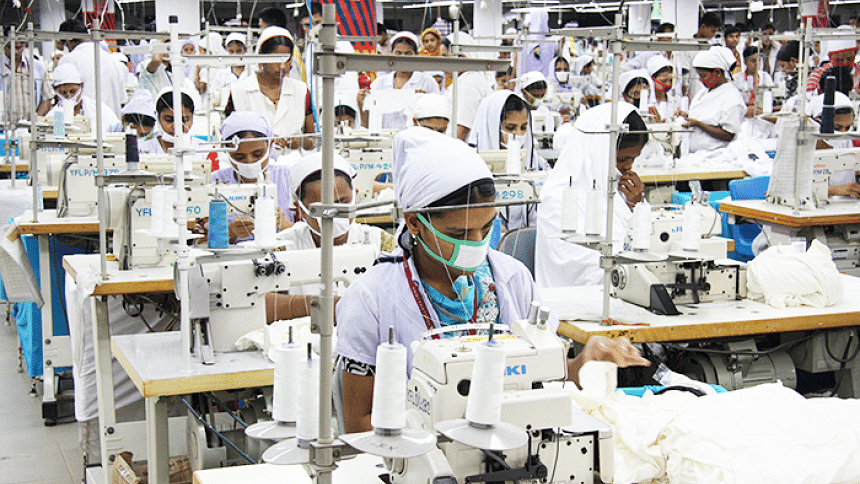Bangladesh and the Commonwealth of Nations: A Boost in Economy

In 1972, when Bangladesh joined the Commonwealth as its 34th Member, the country was still in its infant stage struggling with a war-torn economy and a ravaged infrastructure due to the aftermath of the War of Independence. Over time, Bangladesh attained tremendous development on its economic front. Now, with a resilient and robust economy sustaining growth over the past decade, Bangladesh has received the final recommendation from the United Nations to graduate from the least developed country (LDC) category. This achievement became possible with immense hard work by the nation, along with support from its development partners. Achieving this milestone is one of the most significant events in the country's history. Bangladesh has undoubtedly come a long way as an independent state, as Bangladesh's exit from the LDC category is scheduled to commence in 2026. The parameters for LDC graduation are Per Capita Income (PCI), Human Assets Index (HAI), and Economic Vulnerability Index (EVI). Bangladesh has an outstanding record of satisfying all three parameters back to back, whereas satisfying any two is considered adequate.
LDC status gives a country access to increased benefits like grants, preferential market access etcetera. Bangladesh has been granted a grace period until 2026 where Bangladesh will continue to receive these benefits. Upon exiting the LDC category in 2026, the benefits will decrease. Hence, Bangladesh is preparing a blueprint for a smooth and sustainable LDC graduation.
Bangladesh now needs to go for bilateral and multilateral trade agreements to keep the rate of development progress constant. Bangladesh also needs to look for development partners to ensure the flow of cheaper funds in the overall development of the country. Moreover, the country can work towards achieving common economic goals as part of global political associations such as the Commonwealth.
The nation needs to create a robust blueprint to transition through graduation for the next five years and beyond. Of many criteria the country needs to work on one of the most crucial ones which is boosting trade. Bangladesh can work towards nurturing a strong bond and support structure among the member countries of the Commonwealth. The Commonwealth represents a diverse pool of countries of many unique strengths which presents opportunities to boost trade for all the members. The Commonwealth has a combined population of approximately 2.4 Billion with more than 60 percent of the population aged 29 or under. The combined GDP was estimated at USD 10.4 Trillion in 2017 which was predicted to reach USD 13 Trillion in 2020 (estimation excludes the pandemic effect). GDPwise Bangladesh stands at the 9th position in the Commonwealth members' list. Some of the largest trade partners of Bangladesh are Commonwealth members. The continuous economic growth of Bangladesh along with its LDC graduation have earned the country a seal of global approval regarding the country's development accomplishment. This increases the confidence of foreign financial actors in the economic strength of Bangladesh. Although non-LDC status is not the only factor considered for trade confidence, this should boost the confidence of investors to invest in the country. Bangladesh has a large low-skilled workforce, but should continue to work on increasing its high-skilled workforce and on other aspects where it lags behind, such as the weak investment climate. This would help Bangladesh to gain further confidence of foreign financial actors. The Commonwealth can play a leading role in helping Bangladesh overcome these weaknesses.
The Commonwealth can deploy a program similar to the Hub and Spokes Program which they carried out in the Africa, Caribbean and Pacific (ACP) group of countries. In this program, they can send trade advisors to the government who will consult, advise and provide solutions to improve the issues of weak investment climate, lack of a high skilled workforce and other existing issues. This will assist in enhancing the image of investment in Bangladesh in the global arena. Bangladesh can also benefit from tapping into the immense market of the Commonwealth (as stated above with GDP estimation). The number of youth in the Commonwealth can also be a boon to its member nations if proper skills and knowledge can be disseminated to them. Bangladesh also has a large number of youth population and would benefit from the same initiative to prepare its youth for the future.
Bangladesh has many quality products to export to other Commonwealth countries. Bangladesh excels in the field of ready-made garments (RMG) which constitutes over 80% of total exports. Other fields where the country excels include, but are not limited to, pharmaceuticals, construction industry, agricultural-processing, light engineering, jute products, ceramic products, and many more. The Commonwealth could facilitate the development of Bangladesh's export capabilities, which would allow Bangladesh to benefit from exporting more, and other Commonwealth countries could benefit from access to Made-in-Bangladesh quality products that offer great value, such as RMG and pharmaceuticals.
Bangladesh is currently exploring alternative trading arrangements, i.e. bilateral (and regional) free trade agreements, to combat the potential trade shock that will result from the graduation from LDC status. Arrangements and agreements with member states of the Commonwealth will minimize the trade shock, create harmony, and help achieve the Commonwealth Connectivity Agenda for Trade and Industry goals.
Commonwealth members are already working to strengthen logistics performance, streamline and simplify international transit regimes and behind-the-border regulations, and strengthen trade facilitation. They can also take steps to enhance connectivity through investments in both institutional and physical infrastructures. Commonwealth members already enjoy an advantage when it comes to efficient contract enforcement. The association should consider strengthening dialogue and cooperation at the pan-Commonwealth level, and sharing country experiences and best practices on issues of physical, digital, regulatory, business-to-business and supply-side connectivity, all framed by the need for inclusive and sustainable trade to contribute towards the achievement of the SDGs. Bangladesh can play an active role in improving trade facilitation among Commonwealth countries.
To become more economically sustainable and resilient, Bangladesh needs the support of the Commonwealth in increased trade arrangements and investments. Further, Bangladesh needs to put more effort into becoming more trade-competitive. Bangladesh needs to combat barriers of economic diversification like preferential treatment of the RMG sector and tariff protection for certain domestic industries. Bangladesh can subsidize other growing industries. The Commonwealth countries can help to train and subsidize where required. In the present context of Bangladesh's LDC graduation, a boost in trade between Bangladesh and Commonwealth countries can benefit all relevant stakeholders. By working towards a common goal, Bangladesh and the Commonwealth both would be able to attain much development and prosperity for the citizens of the Commonwealth as a whole.
The authors are Research Associates at Youth Policy Forum. Ahmad Tousif Jami is a recent High School graduate from Dhaka College. Maliha Arosha Hasan is a student of Economics department, Griffith University.

 For all latest news, follow The Daily Star's Google News channel.
For all latest news, follow The Daily Star's Google News channel. 



Comments